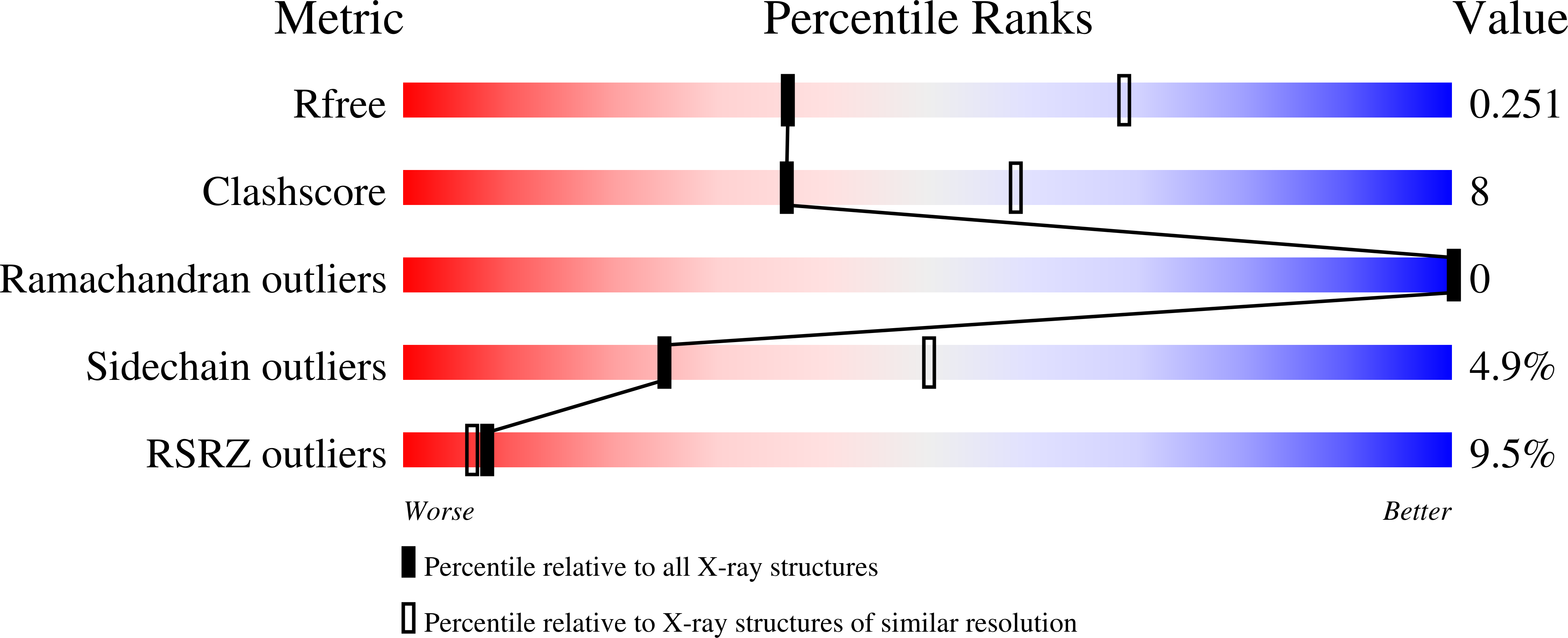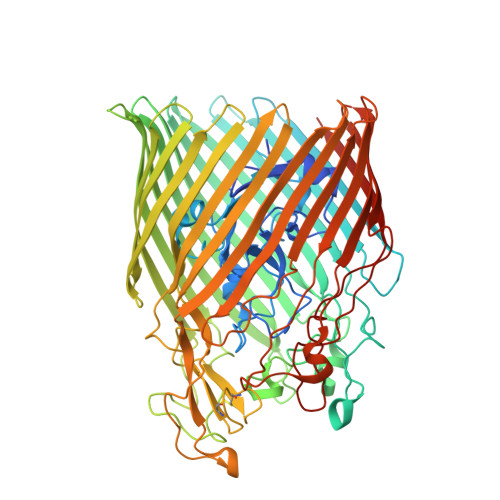Hijacking of the Enterobactin Pathway by a Synthetic Catechol Vector Designed for Oxazolidinone Antibiotic Delivery in Pseudomonas aeruginosa.
Moynie, L., Hoegy, F., Milenkovic, S., Munier, M., Paulen, A., Gasser, V., Faucon, A.L., Zill, N., Naismith, J.H., Ceccarelli, M., Schalk, I.J., Mislin, G.L.A.(2022) ACS Infect Dis
- PubMed: 35881068
- DOI: https://doi.org/10.1021/acsinfecdis.2c00202
- Primary Citation of Related Structures:
5NC3, 6Y47, 6YY5, 6Z2N, 6Z33, 7OBW - PubMed Abstract:
Enterobactin (ENT) is a tris-catechol siderophore used to acquire iron by multiple bacterial species. These ENT-dependent iron uptake systems have often been considered as potential gates in the bacterial envelope through which one can shuttle antibiotics (Trojan horse strategy). In practice, siderophore analogues containing catechol moieties have shown promise as vectors to which antibiotics may be attached. Bis- and tris-catechol vectors (BCVs and TCVs, respectively) were shown using structural biology and molecular modeling to mimic ENT binding to the outer membrane transporter PfeA in Pseudomonas aeruginosa . TCV but not BCV appears to cross the outer membrane via PfeA when linked to an antibiotic (linezolid). TCV is therefore a promising vector for Trojan horse strategies against P. aeruginosa , confirming the ENT-dependent iron uptake system as a gate to transport antibiotics into P. aeruginosa cells.
Organizational Affiliation:
The Rosalind Franklin Institute, Harwell Campus, Oxfordshire OX11 0QS, U.K.
















